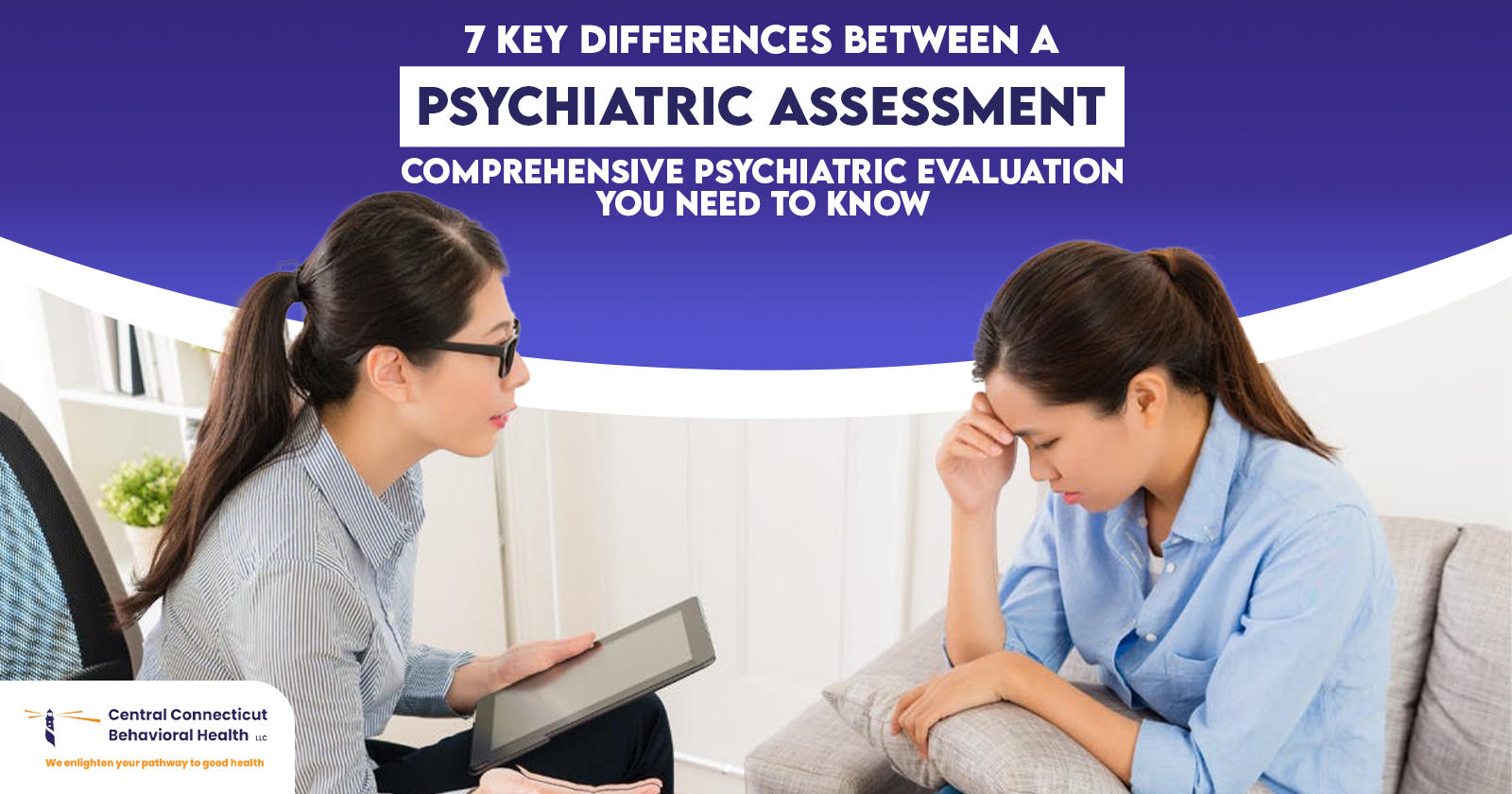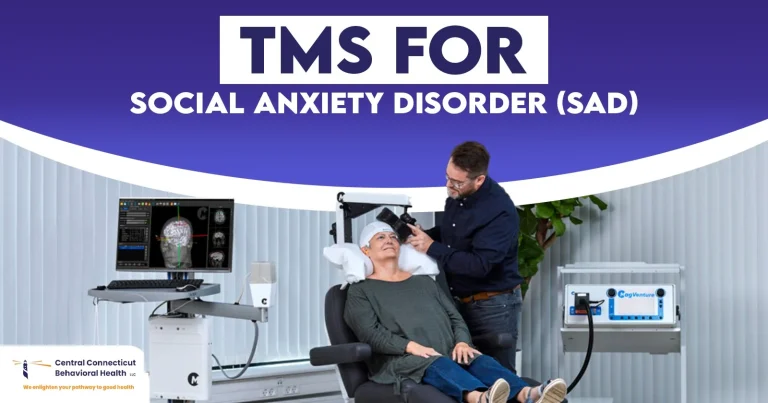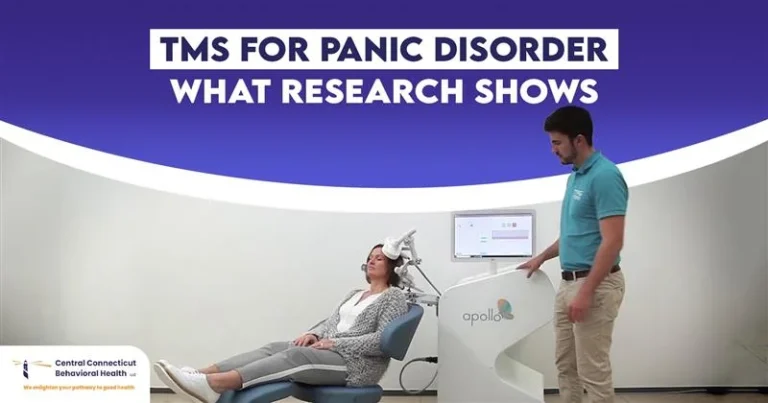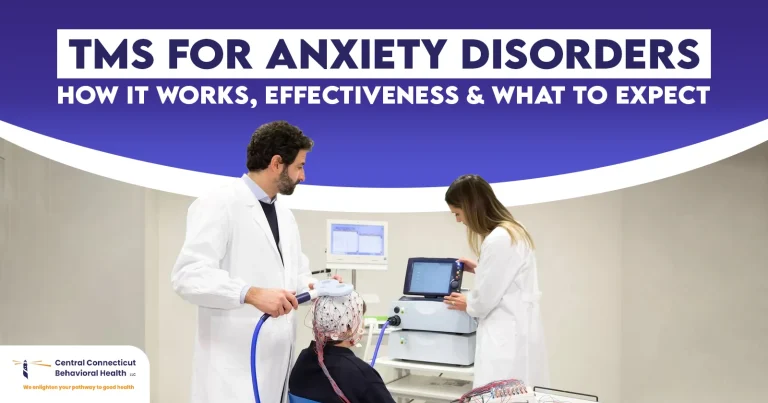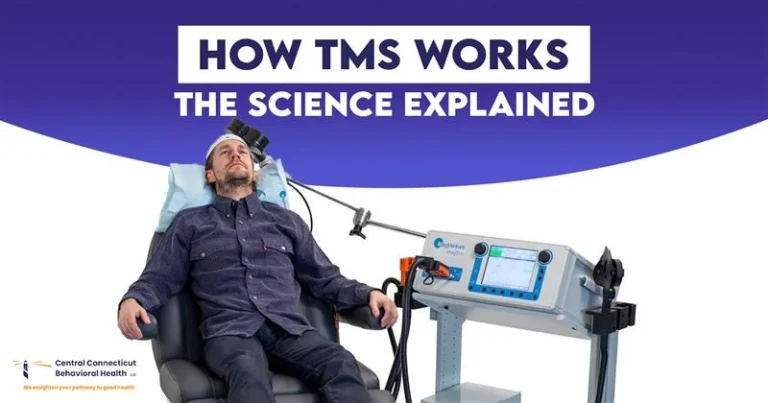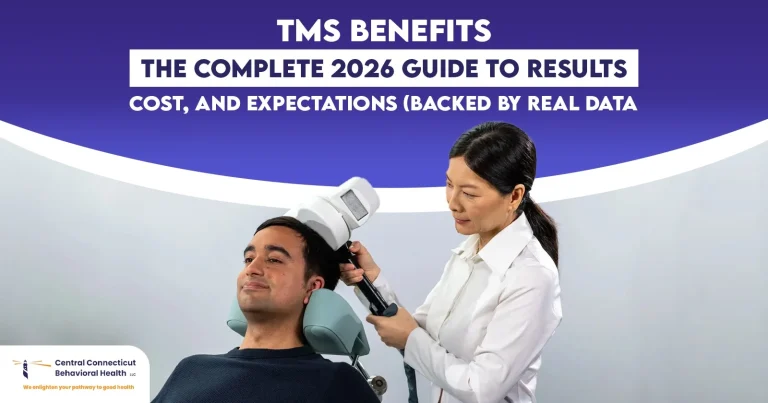When it comes to mental health care, many people find it confusing to differentiate between a psychiatric assessment vs evaluation. At first glance they may seem similar, but they are called two different things because they are meant to do different things and are different for patients. Understanding the difference might help you or your loved one receive the right level of care at the right time.
If you are seeking help from a mental health professional, usually the first step is a psychiatric assessment, which will give you a broad view of your emotional and mental health.
The comprehensive psychiatric assessment consists of a thorough evaluation of your overall history, which includes your medical history, family history, any social situation, and any mental health symptoms.
At Central Connecticut Behavioral Health, they provide both assessments and evaluations depending on the client. Their professional team are experts in providing the client the highest quality of personalized care.
What is psychiatric assessment?
A psychiatric assessment is a short, structured assessment that provides a summary of an individual’s mental health status. Typically, it will cover:
- Questions about their current mood and emotions.
- An evaluation of past medical and psychiatric history.
- A screening for possible mental health disorders.
- A review of medications and other physical health issues.
What is comprehensive psychiatric evaluation?
A comprehensive psychiatric evaluation is more in-depth than a traditional evaluation. It is typically completed by a psychiatrist, psychologist, or mental health professional and can be as long as 90 minutes or more.
The thorough evaluation involves:
- Full medical and family history review
- Personalized questions about lifestyle, relationships and stressors
- Further investigation of symptoms
- Cognitive or psychological testing if required in the evaluation
- Discussion of treatment options for long-term care
7 Key Differences Between a Psychiatric Assessment vs Evaluation
| Factor | Psychiatric Assessment | Comprehensive Psychiatric Evaluation |
| Time Required | Short (30–45 minutes) | Long (60–90 minutes or more) |
| Purpose | Initial screening | Detailed diagnosis & treatment plan |
| Scope | Basic mental health overview | In-depth look at history & symptoms |
| Tools Used | Simple questions, brief scales | Full psychological testing & labs if needed |
| Outcome | Immediate recommendations | Long-term care and therapy planning |
| Who Needs It | Patients with mild or unclear symptoms | Patients with chronic or complex conditions |
| Follow-Up | May lead to further evaluation | Often followed by treatment sessions |
Why Both Processes are Important
Both psychiatric assessment and a comprehensive psychiatric evaluation play a critical role in mental health care. Assessment is the first step and represents the first time a person has taken a step toward treatment. Evaluation ensures not a corner is cut regarding any detail and any long-term considerations have been addressed.
Benefits of a Comprehensive Psychiatric Evaluation
- Some key benefits include
- A complete understanding of mental health needs
- Identification of underlying medical or family issues
- Personalized treatment planning
- More accurate diagnoses
- This is why many patients searching for psychiatric evaluation CT or psychiatric assessment CT often end up being guided toward a full evaluation for better results.
Key Components of a Comprehensive Psychiatric Evaluation
A comprehensive evaluation usually covers:
History of Present Illness
When symptoms started and how they affect daily life
Medical History
Past and present physical health conditions
Family Background
Any history of mental illness or substance use
Social History
Relationships, work, stressors
Mental Status Examination
Thoughts, speech, mood, memory, and judgment
Each of these elements helps form a complete picture of the patient’s mental health.
When Do You Need a Psychiatric Assessment vs Evaluation?
- You may need a psychiatric assessment when:
- You feel sudden changes in mood or behavior
- You need a quick check of mental health concerns
- A doctor refers you for screening
You may need a comprehensive psychiatric evaluation when:
- You have long-term mental health struggles
- You are not responding to basic treatment
- You have complex symptoms that need deep exploration
Role of Connecticut Behavioral Health
Organizations like Connecticut Behavioral Health provide both assessments and evaluations. They ensure patients get access to the right level of care depending on their condition.
Their specialists use evidence-based practices to offer reliable results and effective treatment options.
Mental health has become a major issue, and many patients look for Connecticut
Mental Health services. Assessments and evaluations will allow an individual to be treated appropriately for their presenting issues. Doing both assessments and evaluations enhances precision and eliminates the risk of misdiagnosing an individual’s issues and improves the chances of long-term recovery.
Final Words
Deciding between a psychiatric assessment vs evaluation depends on your unique situation. If you have just begun identifying mental health symptoms,
you may benefit from a quick assessment if it leads you to the correct form of care you need.
If you have been experiencing mental health issues for a longer period of time, the comprehensive evaluation is the best option for you.
The psychiatric assessment provides an overview of your mental health needs
and the comprehensive evaluation allows the time to dig into your life in more detail and uncover underlying issues.
Psychiatric assessment = quick, short-term, screening tool
Comprehensive psychiatric evaluation = detailed, long-term planning tool
Assessment gives first insights, evaluation gives a complete picture
Assessment may lead to further tests, evaluation already includes them
Both are important, but serve different purposes
At Central Connecticut Behavioral Health, patients are guided with compassion and expertise through every stage of assessment and evaluation.
FAQs About Psychiatric Assessment vs Evaluation
What are the differences between a psychiatric assessment vs evaluation?
A psychiatric assessment is brief and concise since it is usually just focused on the problem at hand. A comprehensive psychiatric evaluation is longer and more in depth than an assessment.
Will I only need a comprehensive evaluation?
No, not always. A psychiatric assessment may be enough for your initial concerns.
Where can I get a psychiatric assessment vs evaluation in Rocky Hill, CT?
You may want to reach out to clinics like Central Connecticut Behavioral Health which offer both


